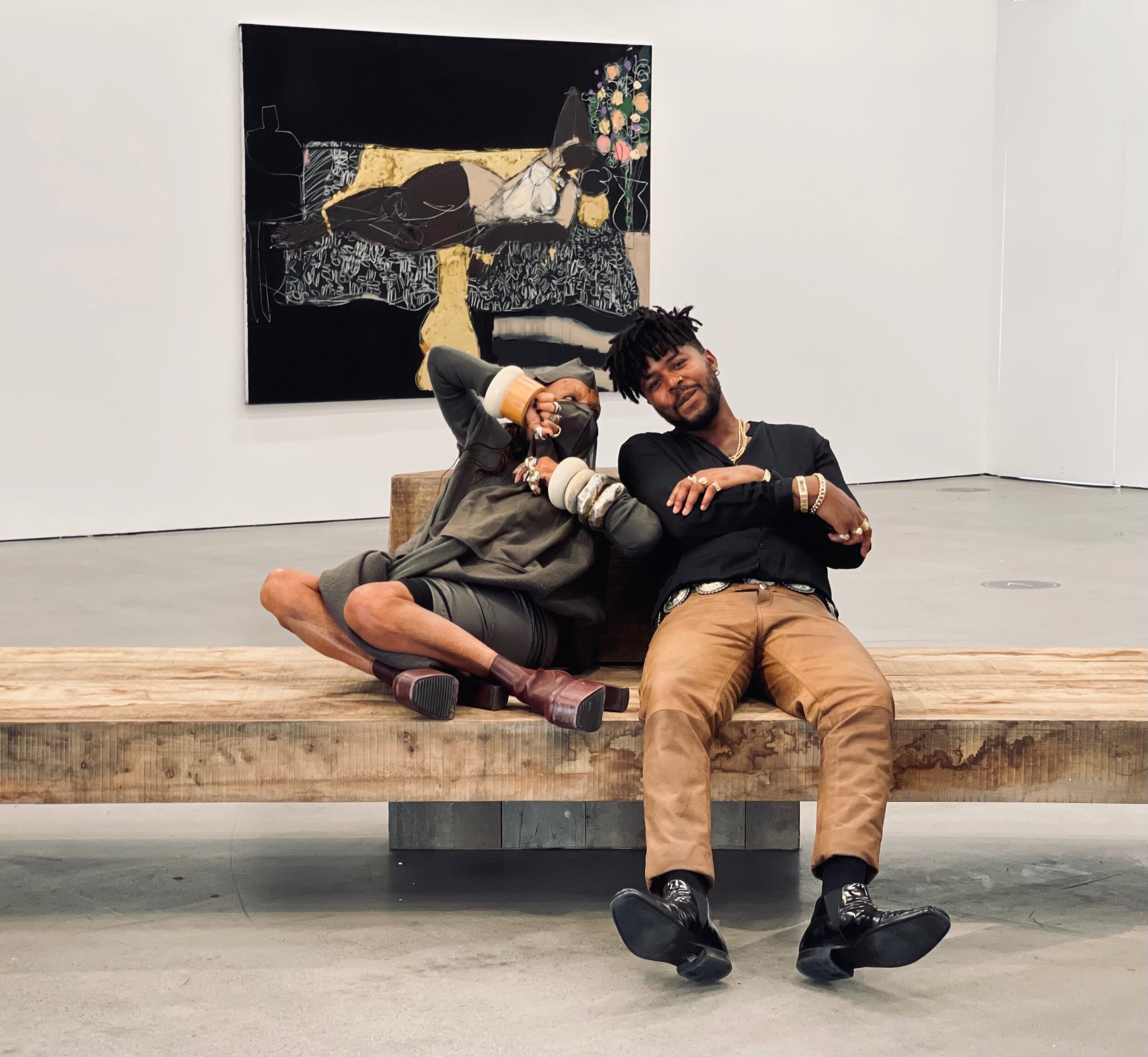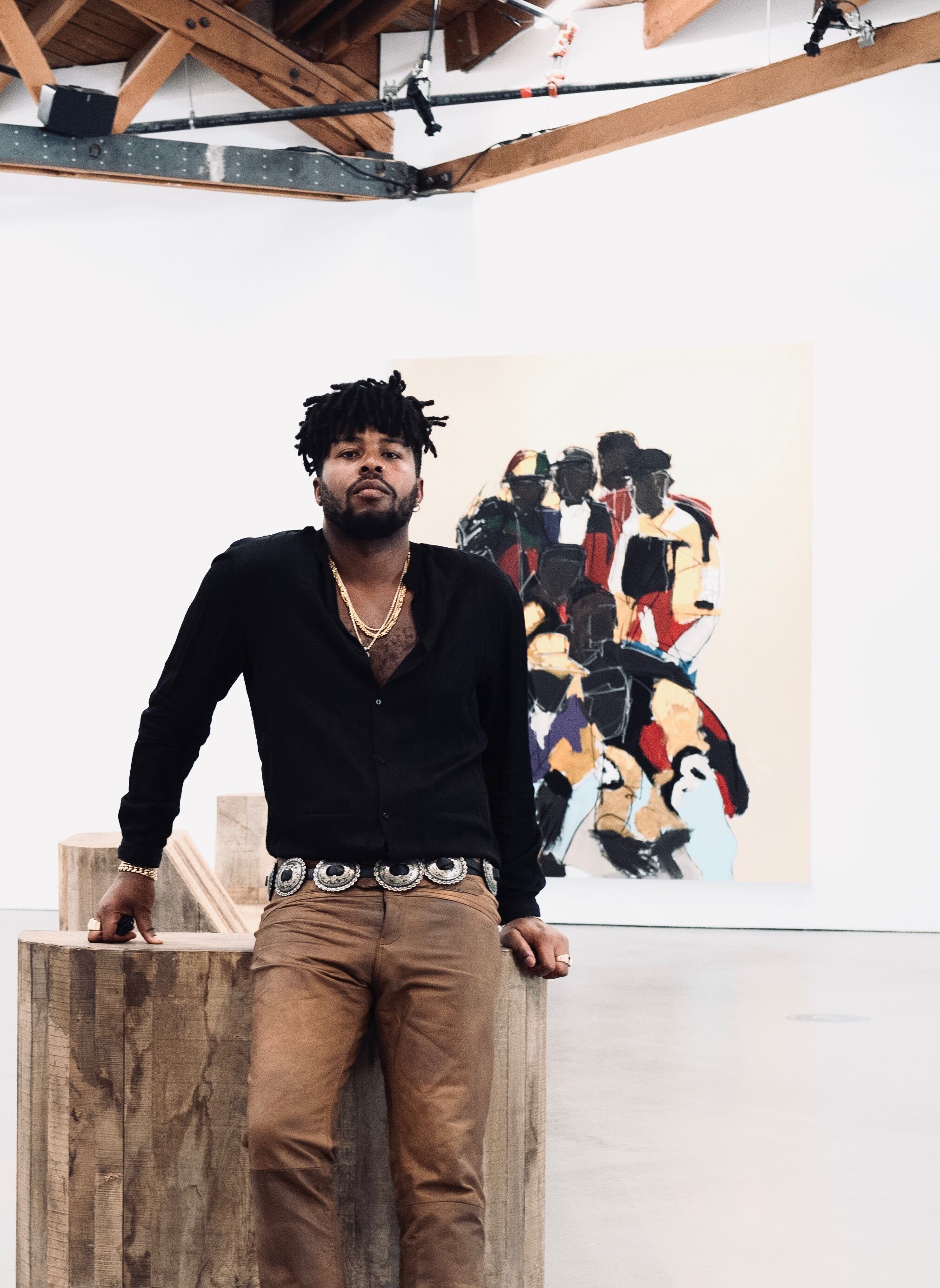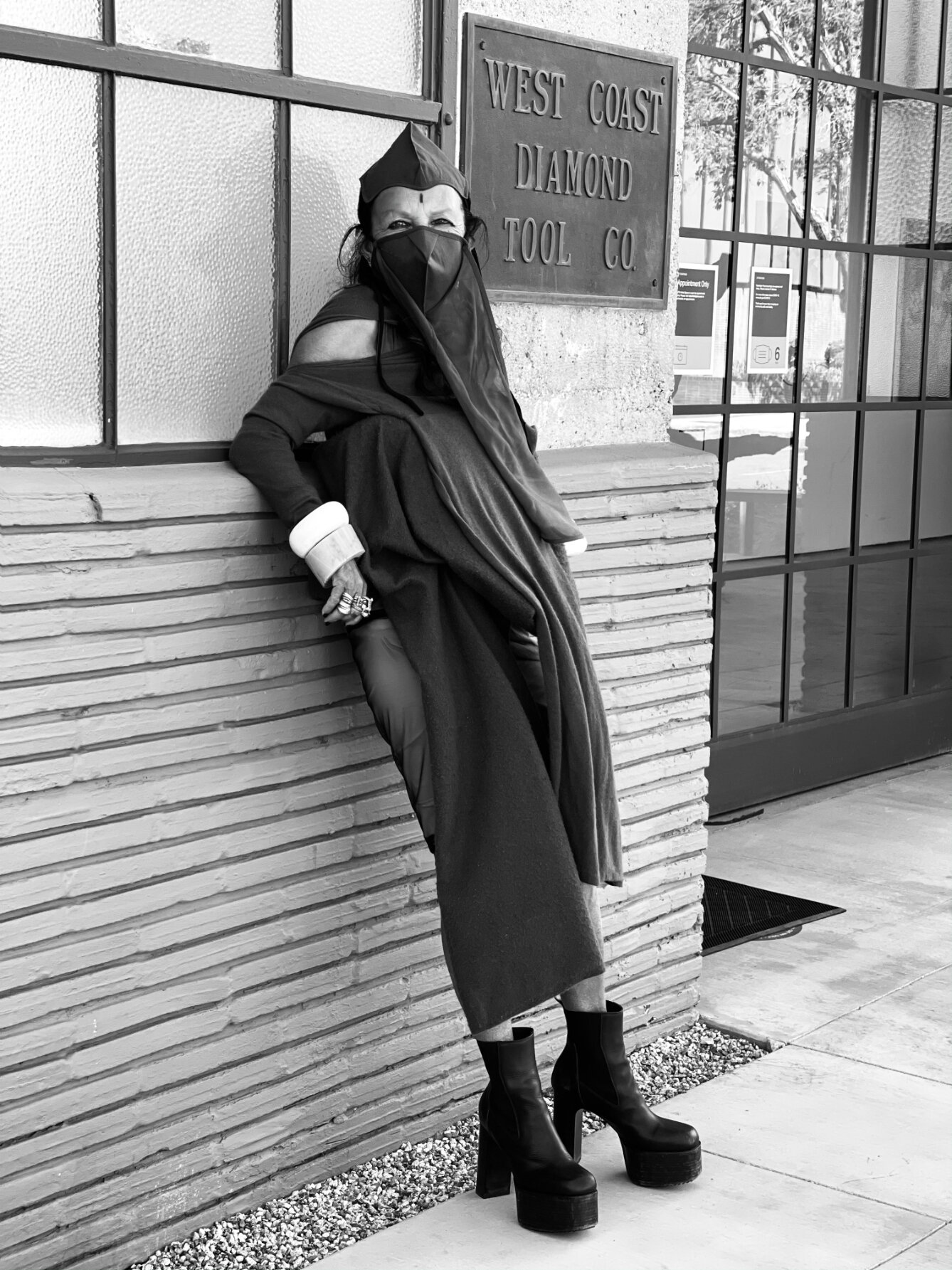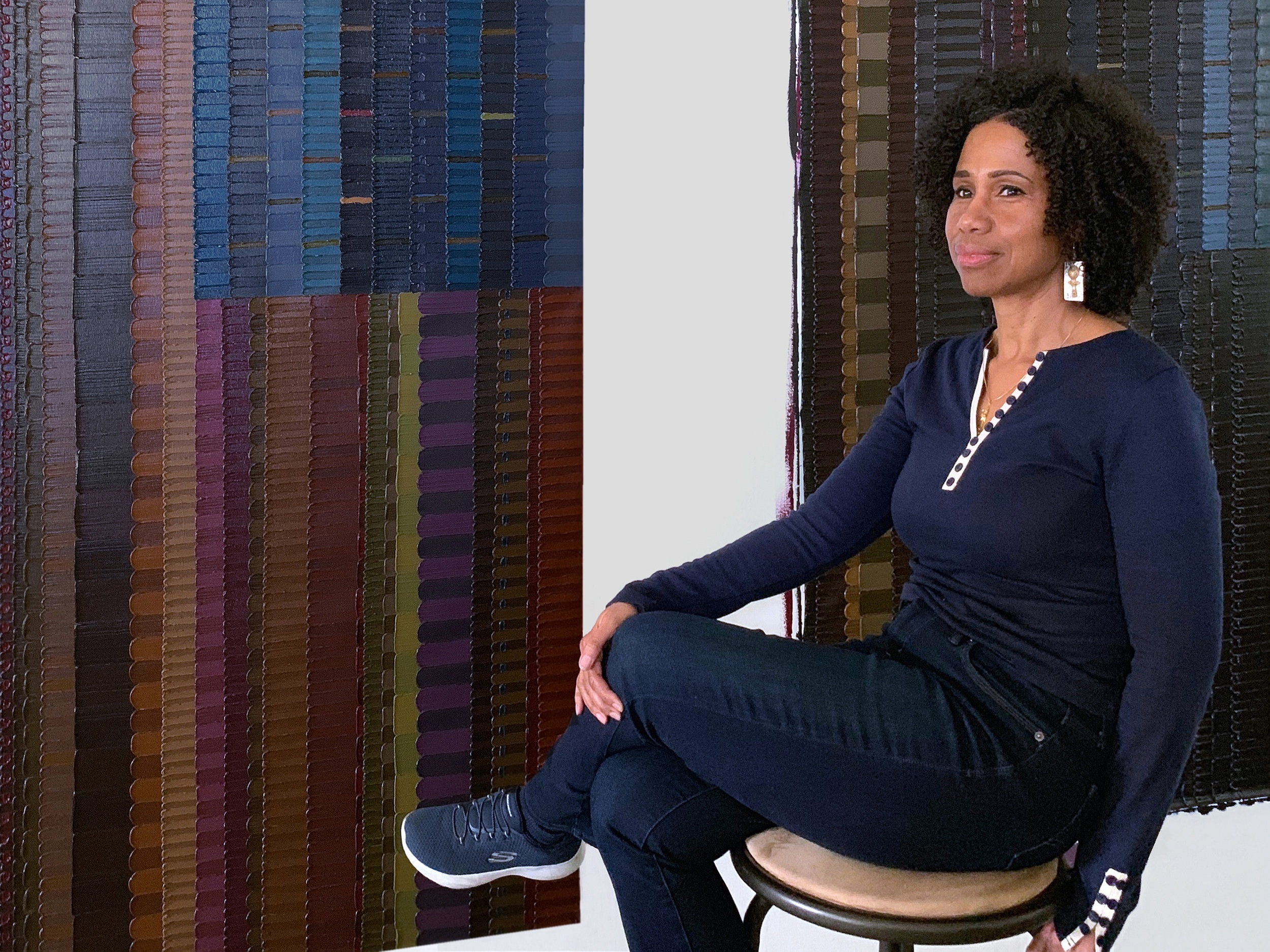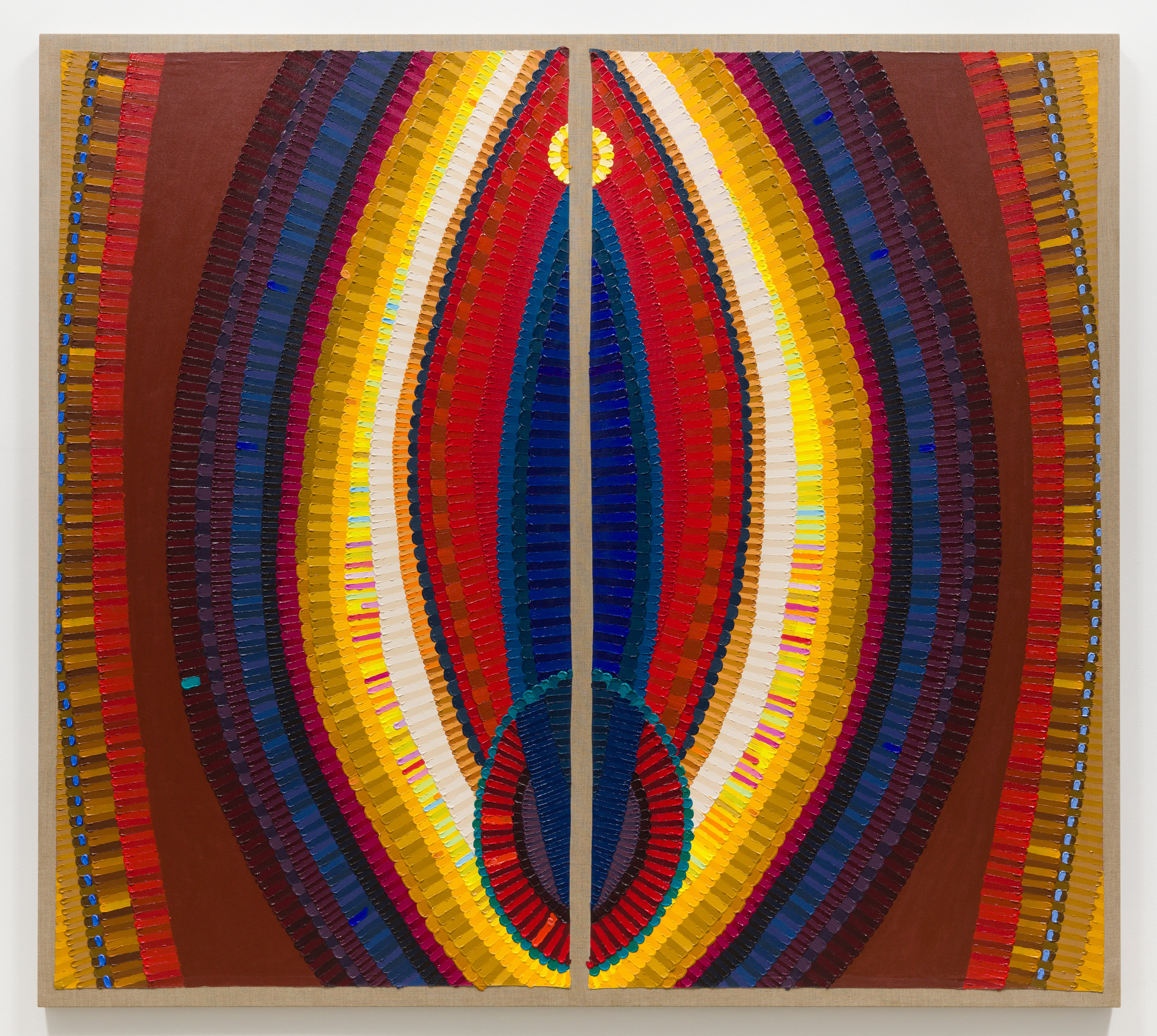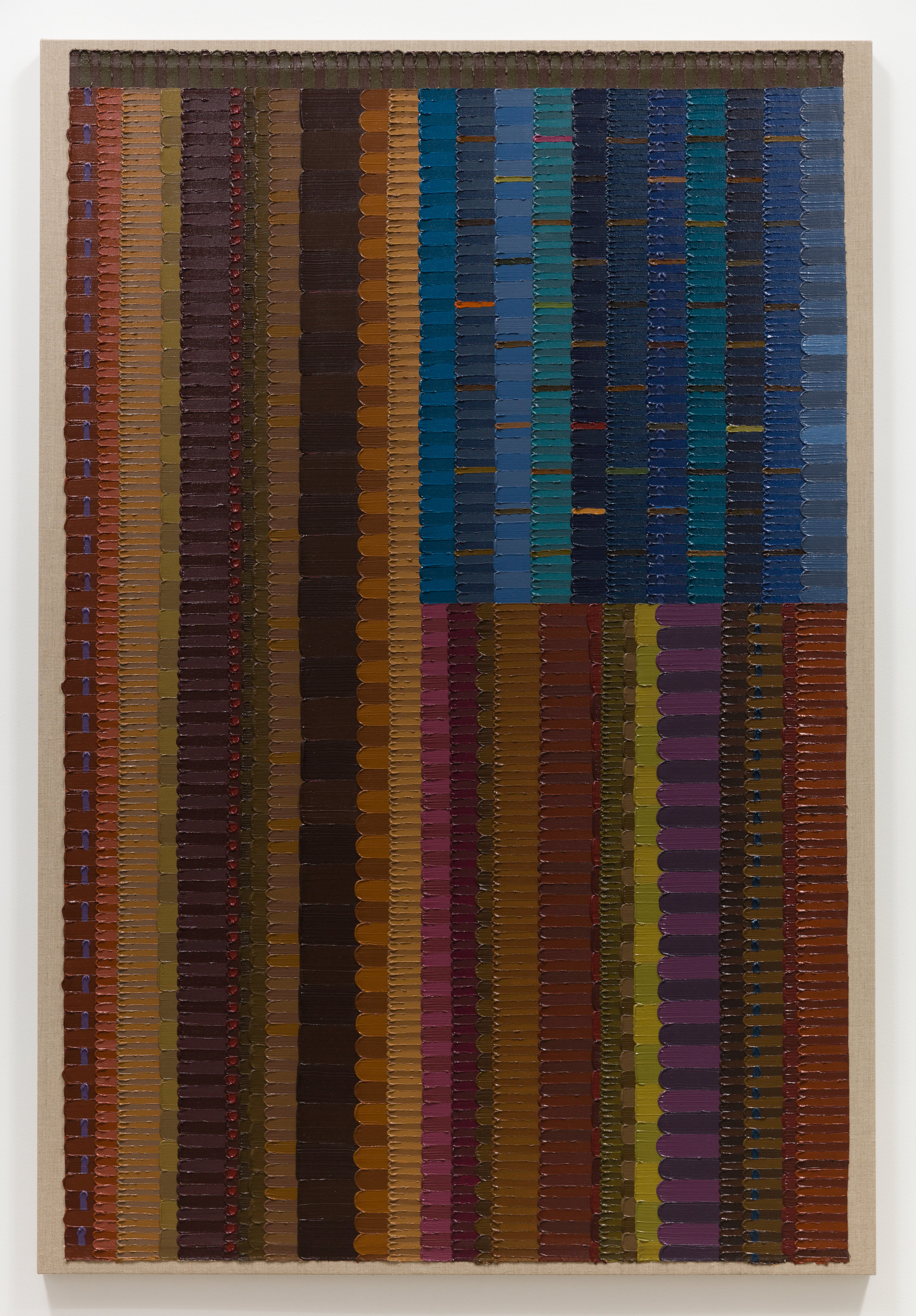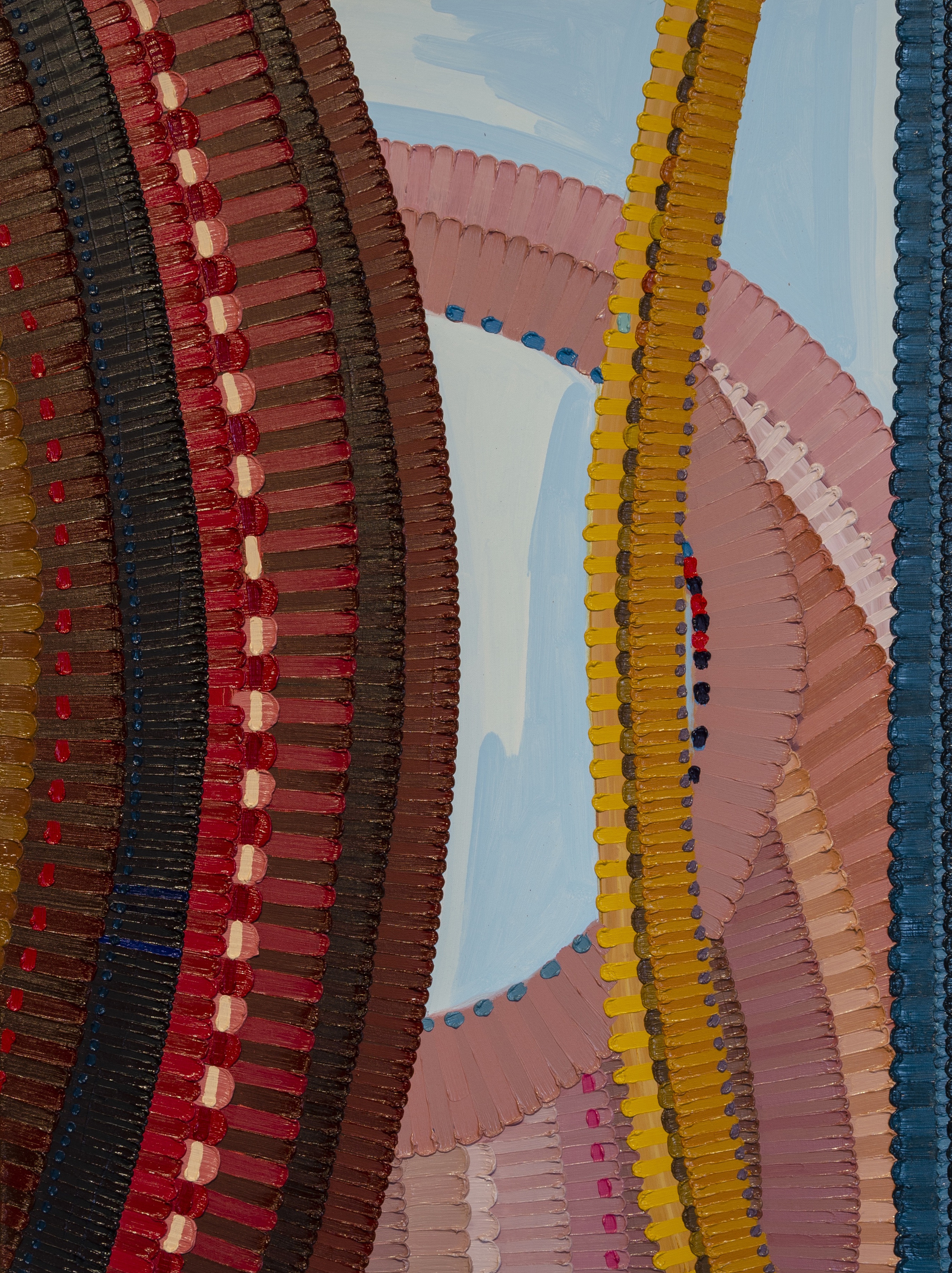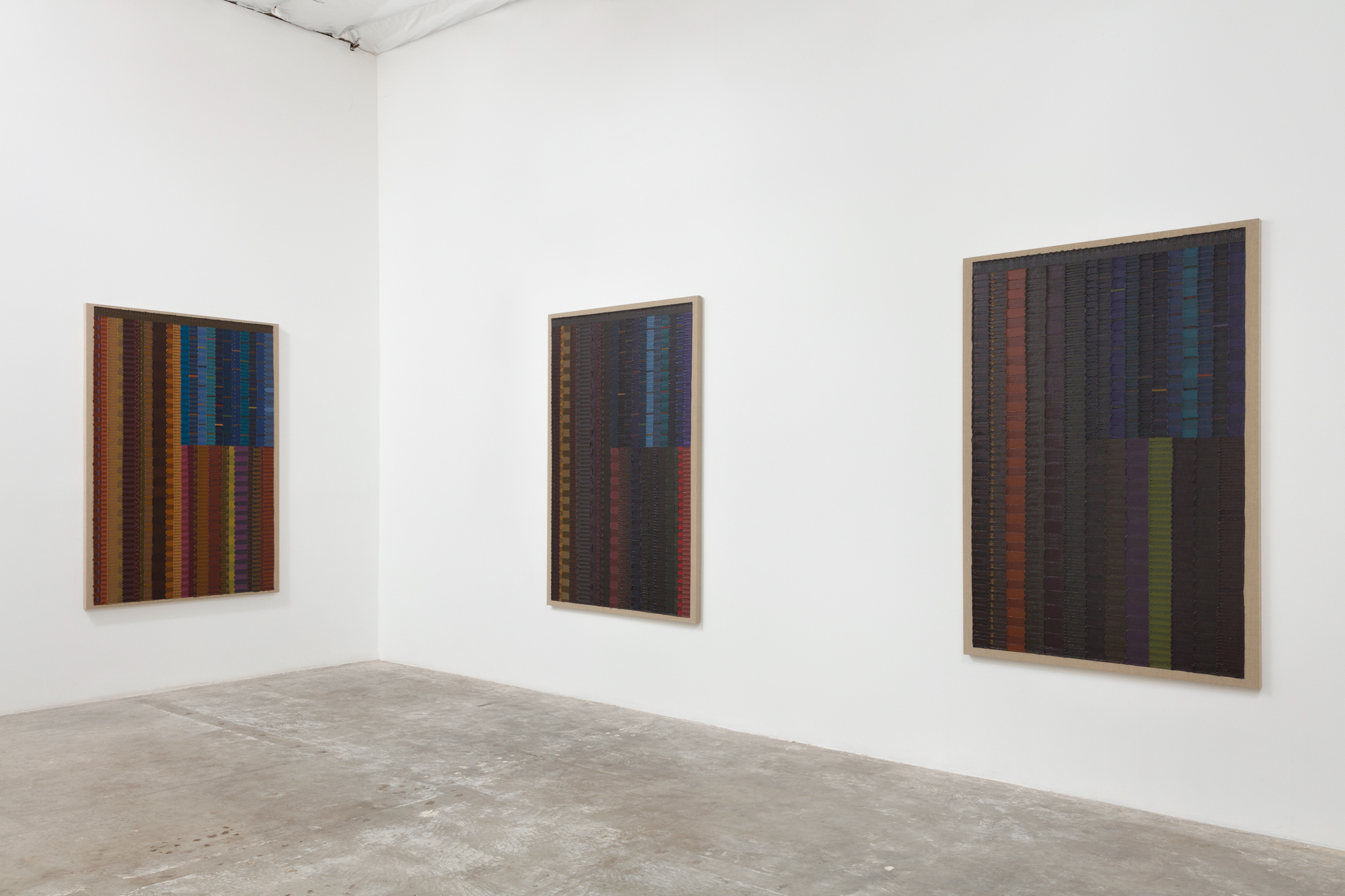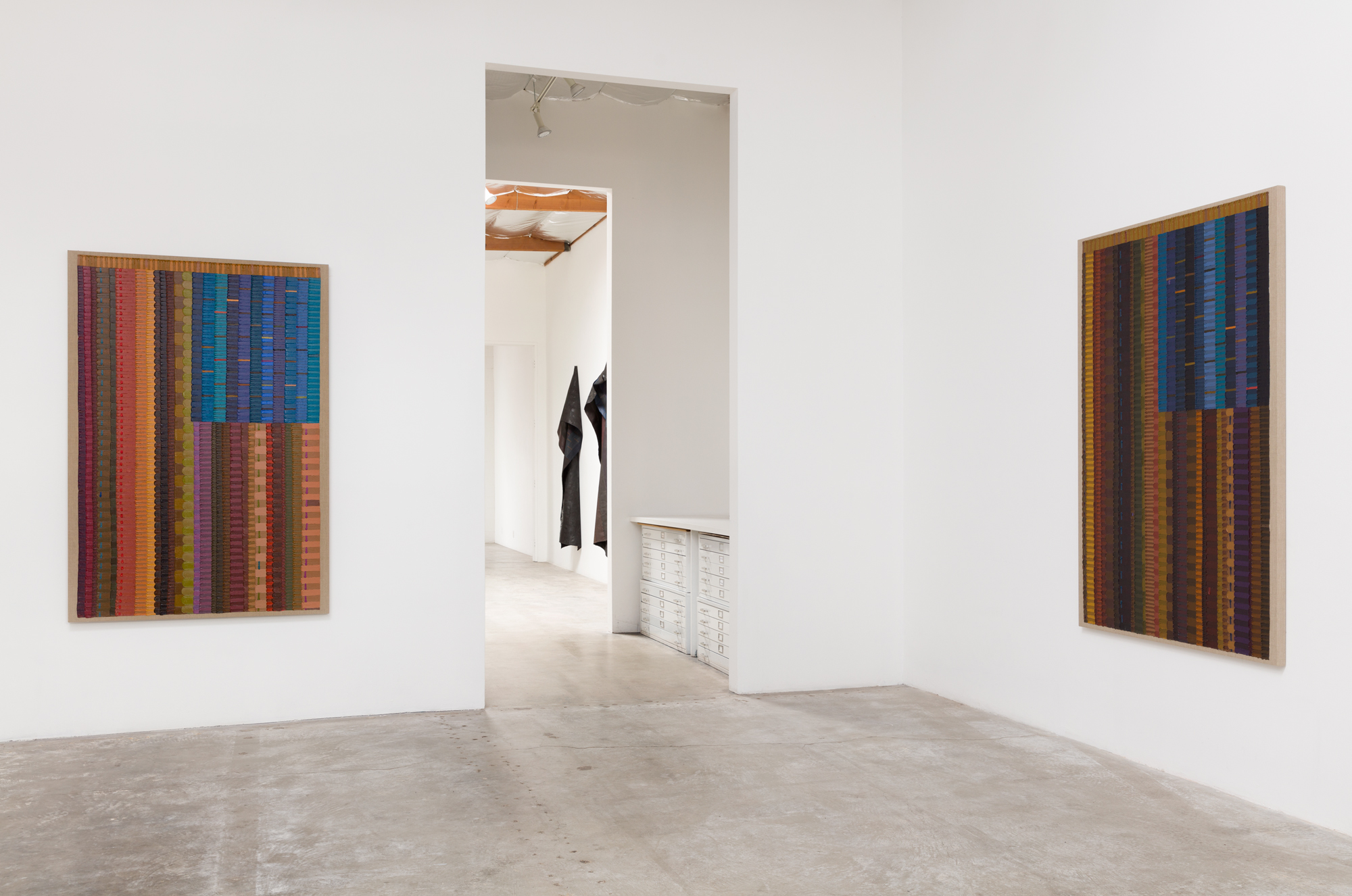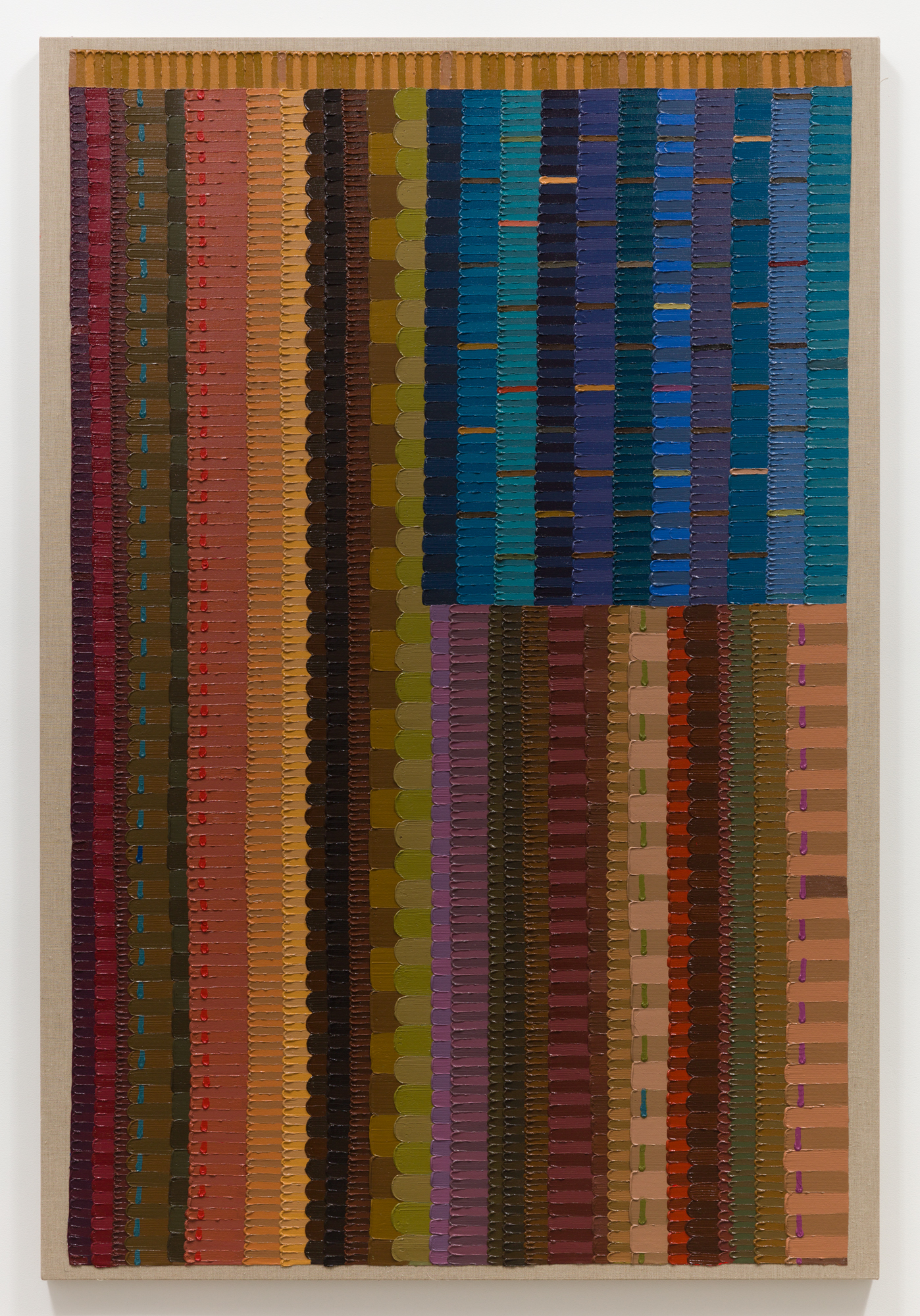Phoebe and Sam, 2025. Photographed by Luke Soteriou In Macer’s studio in London.
interview by Poppy Baring
portraits by Luke Soteriou
Despite the oh-so-competitive fashion industry and the unpredictable nature of the creative job market, young designers Sam Macer and Phoebe Bor demonstrate that there are many different ways to achieve results in this turbulent world. Both designers, who have been friends for several years, have forged their own way and achieved great success. Bor, who has recently graduated from Central Saint Martins (CSM) and is currently experiencing all the attention that comes from an outstanding degree collection, discusses her experience of university, her inspirations, and how she feels about the industry that awaits her.
Sam Macer, who completed the Central Saint Martins foundation course alongside Phoebe, was not accepted into the undergraduate degree programme. However, before finishing his year of studying, his final project, which was a beautiful performance piece involving setting a skirt on fire and letting it burn, received a lot of online attention, giving him the platform to grow on his own. Five years down the line, Macer has dressed stars such as Rosalía, Julia Fox, and SZA.
Both artists discuss their experiences in a way that only friends can. They have a very candid conversation concerning the pros and cons of the type of environment somewhere like CSM creates, their different ways of working and how they have, and continue to remain inspired and authentic. They provide great insight into what it’s like being a young designer; whether you’re just entering the industry or already fully immersed.
POPPY BARING: How did your friendship start?
PHOEBE BOR: We met on our foundation year, I think it was on our first day and there were a group of people standing outside and Sam was there. I introduced myself and we became close straight away … I think we all just went to the pub that evening and then the rest was history, but I found out later that Sam actually thought I was someone completely different for about four months.
SAM MACER: There was another girl that I thought was Phoebe. After three months of being friends, I asked Phoebs about her dad’s jewelry business and she said my dad’s not a jeweler.
BOR: He just thought I was someone completely different. But yes, we hit it off on the first day.
BARING: What would you say are your different inspirations and ways of working?
MACER: I think you probably look more inwardly, it’s more personal but my work is not, I don’t think I draw on anything personal for my work. So I’d say that is the biggest inspiration difference.
BOR: I think I am generally more inspired by personal experience. I grew up and spent a lot of time in the South African bush and I learned a lot through that about nature’s natural materiality. I drew inspiration from the similarities between that and animal textures and started making comparisons. There were so many similarities and links and that inspired me.
BARING: For your final show and with sourcing all of those materials, how is that funded?
BOR: There are opportunities to be sponsored. I got sponsored by a young company in Japan. You reach out to people or people come and find you, but a lot of it you have to fund yourself. There are also scholarships on offer, but that creates a big difference between the ability of people. So, for example, the LVMH scholarship is twenty thousand pounds, so some people have that to play with and some people don’t. So yeah, it’s definitely not an even playing field.
BARING: You both have created amazing art but have been down different paths, how do you think being accepted or rejected by a prestigious institution shaped your confidence, creative approach, or professional path?
MACER: I guess my process wasn’t really a choice. I think it’s relatively common for people to take a year out and reapply to start again the next year, but I didn’t really have the patience or didn’t feel like that was going to be worth me taking out a whole year. So then, it was just a big process of teaching myself everything and learning from there. There has been a lot of learning on the job, making mistakes whilst actively working.
BARING: Even before graduating from the foundation, I remember a teacher not liking the fire idea. Would you say at that point you were already beginning to do your own thing?
MACER: It was definitely an intentional move. I think they were more scared about the danger of it but at that point, I knew there was nothing set up for the future, so I think part of the thought process was I needed to do something really impactful, like borderline shocking, just to make a statement to build a foundation to work off. So yes, I was definitely thinking about that in the making of it.
BARING: Now being five years on your own in this industry without being taught, do you look at that as a positive?
MACER: It was definitely the best thing that happened to me. I learned that craft and execution are really important in my work and having seen Phoebe at university and knowing her experience, that really isn’t actually a taught thing. Even at university, there is still a lot of teaching yourself, especially at places like CSM where they really push the creative aspect of it rather than the craft and technical side of making. So, I don’t think I would have got on well there, I don’t think they would have got what feels important to me.
BOR: It is a very different process. I definitely struggled to find my feet hugely in the first few years of CSM. You get so distracted because there is so much around you. So much noise and then I felt like my placement year (spent working with Harry Pontefract) really helped me, hugely. Just going into industry and having that as a way of learning. I much preferred learning in that capacity and took that mindset when I went back for my final year. I think that that helped me develop my own way of working.
BARING: Do you think those different directions suited you as artists innately or do you think you adapted to the situation you found yourself in?
MACER: I think it makes sense for me as a person. I’m quite reclusive and private anyway. I’ve said to Phoebe I don’t know how she manages to work around that many people. I think it’s impossible being around that many people creating to not have their input coming in. Being able to build my own world here [in his studio] has served me well, but there’s a big part of it—for example this collection, I’ve been working on for probably about a year already and it’s just that collection and me here without any kind of affirmation along the way. That’s quite an intense process because you can get super in your head, seeing the same things every day. Quite often, you find yourself spiraling and going, well that's shit, I don’t like that, or that's boring, or I’ve moved on from that. So, I think that contact part of it is missed and that's quite a valuable thing.
BOR: I couldn’t do what Sam does. I would really struggle. I definitely appreciate the structure and I don’t think I could do without it. I still want to continue having that structure, I enjoy being around other people and it was really important to me to have other people’s input at the same time because you can take it or leave it. There’s a freedom to it, you don’t have to take on everything that everyone says but to have someone reacting to something is really important. It’s that constant ping pong, back and forth in your head and it keeps the blood flowing and the mind ticking over a bit. So, I take my hat off massively to Sam because to go through the process without that would be hard.
MACER: I think working in the industry at the most normal level will fit pretty perfectly in the middle. Where there’s not as much intense engagement as you have at university but also it’s not as isolated as just working on your own thing. If you’re working in a house, it would probably fit perfectly in the middle.
Phoebe's work, 2025, Photographed by Charlie Biglin.
BARING: With so much competition and with that all being right in front of your face on social media, which to some extent is a necessary part of your job, how do you remain productive, original, and confident?
MACER: It’s fucking hard. It’s really hard. I find it really impactful seeing people’s stuff all the time. The brain is going too crazy and I think there’s a lot to be said for just really staying in your own lane with the blinkers on either side because I think as soon as you start looking left or right then it’s easy for the car to just fly off the motorway.
BOR: I would say that I find it quite freeing to believe that in the fashion industry kind of nothing is original anymore. You have to break free from the idea of, oh that’s a jacket that’s been cut before.
It’s about curating stuff in your own way and matching stuff up that makes sense to you. Sometimes the new thing is bringing part of yourself to something that’s already been created. That’s original in itself. Having worked on design teams as an intern, your eyes are open to the fact that that is what a lot of places do, they go through archives and they go through vintage and people send vintage down the runway too and that’s allowed because you’re pairing it with something you’ve made and maybe that’s the fresh thing in itself.
BARING: How do you feel before and after these big moments? I can imagine It’s a big build-up of emotions, what’s the build-up and wind down of that like?
BOR: My biggest moment has definitely been my final collection and I was so nervous. We have an internal show and then we have a press show. When I found out that I was closing the internal show, it just blew my mind because I just thought about myself in the first year and I would have never in a million years thought that that would be the case.
It’s really overwhelming. At CSM, there’s a lot of pressure when you realize what a different opportunity it provides. They invite so many people from industry to that show and it is put on such a pedestal. If you are successful, there is a huge amount of attention and it is quite scary. I had never had that kind of recognition from people before and the immediate reaction was, oh when’s this going to stop, when’s this going to run out, I need to do something else now to keep the momentum, I gotta keep my legs running and moving and trying to hustle out of it. So, you think it’s going to be a big relief but it never stops, but we love it.
BARING: What are your biggest fears or anxieties going forward into a very competitive industry and how do you overcome them?
BOR: Technology. Me and technology, we don’t really mix too well. In big houses, there is a lot of Photoshop, Illustrator, InDesign all these things and I’ve never felt that that has been my creative practice, I never lean towards it, I’m not inspired by it hugely and have had the freedom to be like that up until now. I guess because at Saint Martins you are allowed to create in whichever way you choose, but when you go into a company, you have to mold yourself into the way that they do things, but I guess I enjoy the craft and using my hands.
MACER: My main anxiety is probably just sustainability of my energy because there’s so much failure and the work that you see publicly is probably fifteen to twenty percent (max) of the work that I do. There are so many let-downs and peaks and troughs of emotions within such a tight period of time and it’s hugely taxing. I’m definitely still learning the methods of processing it. As soon as I finish a job, I try to maintain my energy by almost forgetting about it and acting like it’s never going to happen because there are too many moments of getting huge opportunities that never come to fruition.
BARING: I imagine the highs and lows become more intense as you put more into it. How many days do you work?
MACER: I haven’t taken a day off this year. Monday to Sunday. For example, working with people in America, you’re expected to be awake when they are awake. There is no time off, it’s always go. There is a big work guilt. There’s also that thing of once I go on holiday, you’ll get a million jobs. It’s everything, you put all your energy into it and I don’t think there is a huge amount of reciprocal respect there, with the people you’re working with I think it's often treated as quite disposable. If you go on a music video shoot for example, there will be a whole room full of racks of clothes and you know four looks are going to be made out of that, so your chances are always slim, you’re always hedging your bets with it.
BARING: Even in terms of payment, I understand the being paid in exposure idea, at least at the beginning, but has that shifted for you now?
MACER: It’s probably only come about recently in the last eight or nine months, (through) recognising the amount of time I’m putting into it, and just holding respect for what I’m doing. I think the working for free for exposure thing, it’s often not an equal payoff considering the money and energy you’re putting into it.
BOR: I mean I’ve done this whole show and there’s been exposure in quotation marks, which I’m so grateful for and has opened some doors for more “exposure” but at what point do I know that I’m valuable enough to be paid? You have to make the decision for yourself and that’s a massive risk as well because then comes the thing of maybe no one wants to pay you and then what. You feel like, am I just going to sink to the bottom?
Phoebe and Sam, 2025. Photographed by Luke Soteriou at Macer’s studio in London.
BARING: Has there been anything that has surprised you about the industry so far?
MACER: You hear these generalizations about what the fashion industry and the characters that exist in that world, and probably from an outside point of view you think those are slight caricatures, but I think it’s very much a reality. It’s just as cutthroat as people describe it. So, the biggest learning curve is really holding your ground and respecting your work as much as you can because no one else is going to respect it or treat it as well as you are. You have to grow a very thick skin because there’s a huge amount of failure.
BOR: The most important thing is, you have to be in love with it. You have to be excited by the opportunity and the risk. That’s what’s got to keep you ticking, it all has to be enjoyable, you have to love the drama a little bit because it’s never going to go away, but you feel like you’re part of something beautiful and bigger.
The most shocking thing I’ve found is the complete lack of money at the bottom end of it. In most other industries, working for people the hours that you do, you would be paid. And it’s not even just your work, they pick your brain and that’s just expected. It’s not that the people I have worked for are any different from others in the industry but they feed off your commitment and you have to prove yourself. It’s a huge privilege to be able to do it to be honest because it’s not kind to people who can’t afford to do it.
MACER: It’s a huge problem that is right at the top of the industry. I can’t afford to pay my interns and there is no way I can switch that up and be like, “Okay, we’re going to change the system, I’m going to pay you.” because that means I need to be paid more by the people I’m working for and they need to be paid more by the people above them. So, it’s really hard to make that change from the bottom and make it more accessible and inclusive.
BARING: What do you think other designers do well to gain exposure, do you think there is a deciding factor?
MACER: I think you can apply this to anything in the industry, there is no formula. There is no rule book to say if you want to be in this job, follow steps one through ten and you’ll end up in that position. But that’s the exciting thing about it because you can forge your own path but it makes it more like the wild wild west, you’ve really got to figure out your own shit.
BOR: You have to have your own formula. If you have someone else’s formula, it’s not going to work, or it might work for a second but it’s definitely not going to last.
MACER: There’s also so much dependence on time and place, if what you’ve made really hit a nerve—like the Conner Ives t-shirt, the Protect the Dolls t-shirt, that was so politically aligned in timing that it really blew up and created so much social traction. I guess that was just a very smart intuition thing from his point of view.
BOR: I know people bang on about it, but it’s genuinely about authenticity. You can tell so clearly the difference and that’s coming from a place where for a long time I didn’t have it. It is original when you’re authentic and when it’s not it can be very very obvious. There is something to be said for shock factor these days. Sometimes people go very big and that is also seen as impressive. But when you do that, there’s a danger of it not being sustainable. Then again, if that’s authentic to you, it often works.
Phoebe’s work, 2025. Photographed by Grace Vigrass.
BARING: What’s a piece of advice you would give each other, based on your own experience?
MACER: If I were in Phoebe’s position, I would just try as many things as possible and really not overthink what you’re doing. Just throw yourself at anything that comes your way. That’s probably responding to what we were talking about earlier at university. The most valuable thing about it is the freedom to play. That gives you so much chance to dive deep into what feels right with what you’re making, rather than thinking of everything as being part of public (consumption) and being perfect.
So, if I were in your position, I would explore and experiment and have fun.
BOR: I would probably say have faith in yourself, because you work so hard. Keep working like how you’re working and it can’t go too wrong.
I would say Sam hugely motivates me, I mean we spend a lot of time together and watching him work as hard as he does is so inspiring, genuinely. It’s so so impressive and has just broken boundaries of what one person can do and allowed my mind to explode with what I’m capable of. It’s given me confidence to do all the things that I’ve done. I see you doing so much and it’s like, wow if you really sit down for seventeen hours a day you can get a lot done. So I just would say, “Stop beating yourself up so much and have faith in your work ethic and craft.”
Also, don’t be so picky with stuff. He’s a perfectionist, we are very different In that way. I'm less of a perfectionist.
MACER: I was thinking that with the SZA job, there was a lot of stuff that took me around two days to perfect that is very much not apparent in any of the videos.
BOR: Yeah, people can’t tell in those situations so it’s actually not necessarily always worth the agony you put yourself through.
MACER: Yes, you have to think about the bigger picture.
Phoebe and Sam, 2025. Photographed by Luke Soteriou in London.







